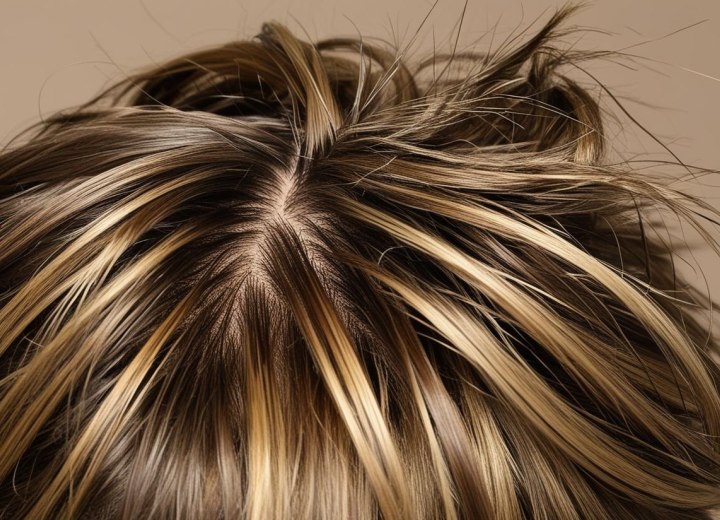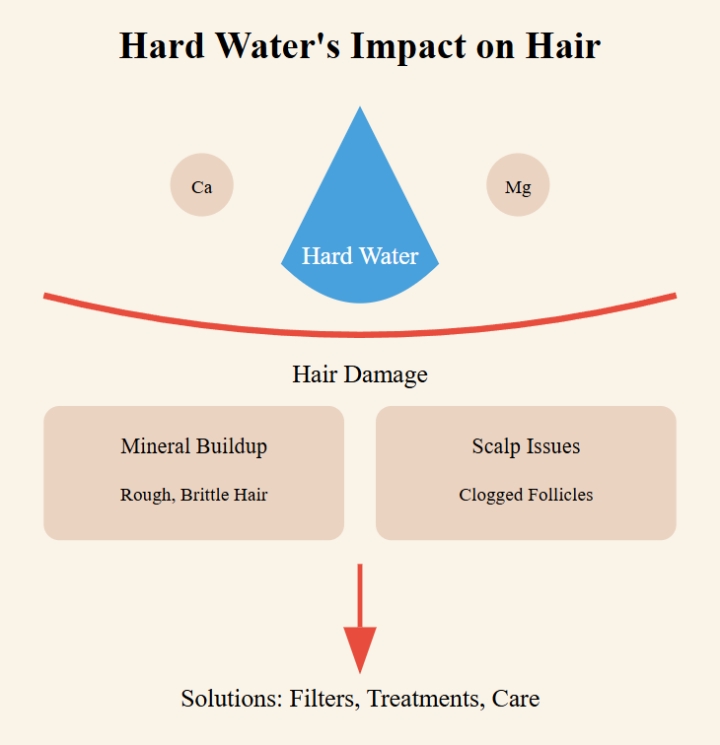Hard Water & Hair Damage

A: Hard water is water that contains high levels of dissolved minerals, primarily calcium (Ca) and magnesium (Mg). As water travels through limestone, chalk, and other mineral-rich formations, it picks up these minerals. When the mineral content exceeds 120 parts per million (ppm), the water is considered hard.
Hard water affects hair in several ways. The high mineral content creates a film on hair strands, making them feel rough and brittle. This buildup can cause hair to appear dull and lifeless, making styling more difficult. Additionally, mineral deposits can clog hair follicles, potentially disrupting the normal hair growth cycle and creating an environment less conducive to healthy hair growth. Over time, all of this can lead to increased hair breakage and an overall deterioration in hair quality.
Fortunately, there are ways to protect your hair from the damaging effects of hard water. Installing a water softener or using a showerhead filter designed to remove minerals can make a significant difference. Periodically using clarifying or chelating shampoos can help remove mineral buildup, while leave-in conditioners create a protective barrier. Rinsing hair with distilled or filtered water, using apple cider vinegar rinses to dissolve mineral deposits, and incorporating deep conditioning treatments can also help maintain hair health.
Some hair types are more vulnerable to hard water damage than others. Curly and textured hair, chemically treated hair, fine or thin hair, and color-treated hair tend to be more susceptible to dryness, breakage, and mineral buildup. If you fall into one of these categories, taking extra precautions to protect your hair is especially important.

©Hairfinder.com